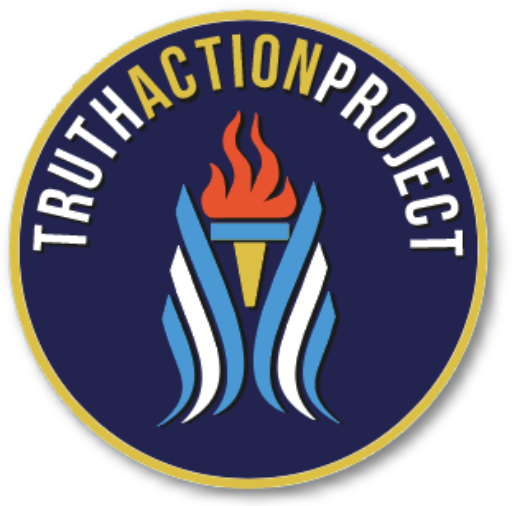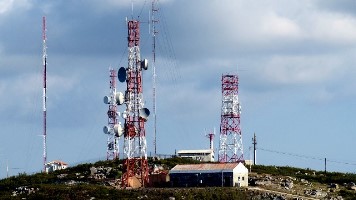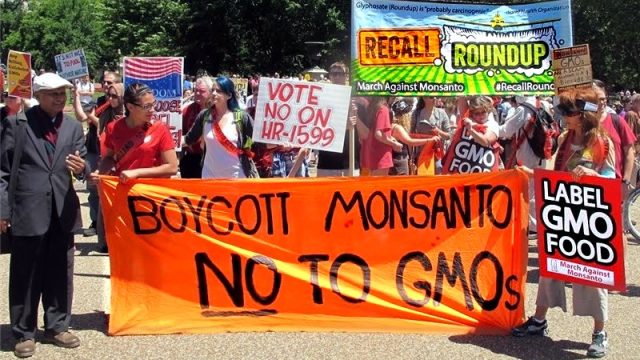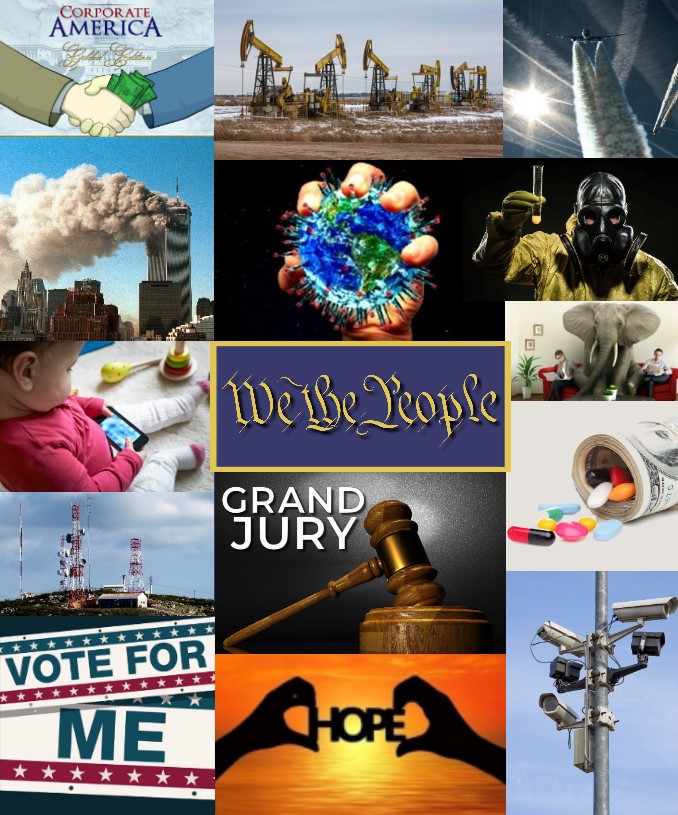
Regulatory Capture of the Federal Communications Commission
The Federal Communications Commission (FCC) is an independent agency of the United States federal government that regulates communications by radio, television, wire, satellite, and cable across the United States. Wikipedia
The Fairness Doctrine required broadcast networks to devote time to contrasting views on issues of public importance. Congress backed the policy in 1954, and by the 1970s, the FCC called the doctrine the “single most important requirement of operation in the public interest.” Under President Ronald Reagan, the FCC repealed the policy in 1987. And as a consequence, the United States has become more polarized than ever in modern history.
The Federal Communications Commission (FCC), regulates the communications industry. Decades ago, it oversaw compliance with the “Fairness Doctrine,” which required radio and television stations to grant equal time to opposing views.

Telephone, radio, television, and the internet fall potentially within its domain. Its commissioners and lawyers acquire expertise that makes them potentially very valuable to the industry they regulate when they leave. How well is that potential conflict of interest managed?
NBC Warns Against Removing Fairness Doctrine (March 18th, 1987)
[The Bohemian Report YouTube Channel]
In this Congressional footage from 1987, we see a testimony given by the President of the National Association of Broadcasters Television Station Group, NBC Westinghouse, Thomas Goodgame, on why he feels removing the Fairness Doctrine will endanger fair and equal access to media. Towards the end, you see Robert L. Shayon, Professor of the Annenberg School for Communication.
Fairness in Broadcasting Act of 1987 – Witnesses testified on the need for the Fairness Doctrine in the broadcast medium. this first hearing on S. 742 to clarify the congressional intent concerning, and to codify, certain requirements of the Communications Act of 1934 that ensure that broadcasters afford reasonable opportunity for the discussion of conflicting views on issues of public importance. Listen to the full Hearing, Here.
Witnesses testified on the need for the Fairness Doctrine in the broadcast medium. This first hearing on S. 742 is to clarify the congressional intent concerning, and to codify, certain requirements of the Communications Act of 1934 that ensure that broadcasters afford a reasonable opportunity for the discussion of conflicting views on issues of public importance.
Former FCC Chairman Charles Ferris On “Fairness Doctrine”
[The Bohemian Report YouTube Channel]
While much is being written these days about how the pharmaceutical industry has “captured” the agencies that were created to regulate it, there seems to be much less awareness that the telecommunications industry captured its regulatory agency—the FCC—a long time ago and is currently in little danger of losing its prisoner.
However, research on the health effects of electromagnetic radiation from all sources—television, computers, routers, cell phones, and cell towers—has been advancing, and is being used to good effect in legal actions.

Apart from the basic question of protecting the health of ourselves, our children, and all the living creatures around us.
TAP is also interested in the FCC because it is one more example of the “New Normal” in our governance. Industries and big tech are profit-driven, and regulatory agencies were created to protect the public when collusive industry practices could only be reined in by the power of government.
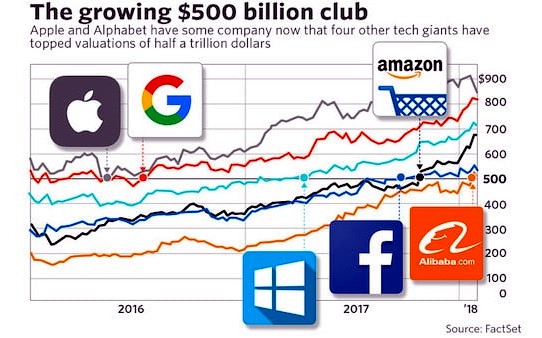
This raises fundamental questions about liberty and democracy—who does government serve, and whose liberties does it preserve?
Furthermore, the expansion of cell networks serves little practical purpose other than to increase the power of the government to surveil and manage its citizens, as recent discussion of central bank digital currencies, social credit scores, and universal surveillance have made clear.
In this respect, the cell phone is closely tied to new developments regarding digital passports. That is why TAP is seeking local Partner organizations in the field of EMF/Radiation—groups that are working locally to reduce the impact of cell towers on our health and increase public awareness of the health impacts of radiation and measures we can all take to reduce exposure. If you belong to such a group or want to form one, TAP can help you build your network.

That is why TAP is seeking local Partner organizations in the field of EMF/Radiation—groups that are working locally to reduce the impact of cell towers on our health and increase public awareness of the health impacts of radiation and measures we can all take to reduce exposure. If you belong to such a group or want to form one, TAP can help you build your network.
5G and cell phone towers are rapidly becoming a fixture in our communities and neighborhoods. You can find out how many towers and antennas are near you, within a 3-mile radius, by going to AntennaSearch.com and entering your address.
Two organizations that have been leaders in bringing the EMF issue to the forefront are the Environmental Health Trust and the Children’s Health Defense.
Regulatory Capture of the U.S. Department of Agriculture
The U.S. Department of Agriculture (DOA) is the federal executive department responsible for developing and executing federal laws related to farming, forestry, rural economic development, and food. Wikipedia
The DOA (along with the FDA and EPA) oversees agricultural practices in the United States, but the case of the broad deployment of glyphosate shows how federal agencies can fall asleep at the wheel.
Regulatory Capture of the U.S. Department of Agriculture
The U.S. Department of Agriculture (DOA) is the federal executive department responsible for developing and executing federal laws related to farming, forestry, rural economic development, and food. Wikipedia
The DOA (along with the FDA and EPA) oversees agricultural practices in the United States, but the case of the broad deployment of glyphosate shows how federal agencies can fall asleep at the wheel.

The Federal Communications Commission (FCC) is an independent agency of the United States federal government that regulates communications by radio, television, wire, satellite, and cable across the United States. Wikipedia
The Fairness Doctrine required broadcast networks to devote time to contrasting views on issues of public importance. Congress backed the policy in 1954, and by the 1970s, the FCC called the doctrine the “single most important requirement of operation in the public interest.” Under President Ronald Reagan, the FCC repealed the policy in 1987. And as a consequence, the United States has become more polarized than ever in modern history.
The Federal Communications Commission (FCC), regulates the communications industry. Decades ago, it oversaw compliance with the “Fairness Doctrine,” which required radio and television stations to grant equal time to opposing views.

Telephone, radio, television, and the internet fall potentially within its domain. Its commissioners and lawyers acquire expertise that makes them potentially very valuable to the industry they regulate when they leave. How well is that potential conflict of interest managed?
NBC Warns Against Removing Fairness Doctrine (March 18th, 1987)
[The Bohemian Report YouTube Channel]
In this Congressional footage from 1987, we see a testimony given by the President of the National Association of Broadcasters Television Station Group, NBC Westinghouse, Thomas Goodgame, on why he feels removing the Fairness Doctrine will endanger fair and equal access to media. Towards the end, you see Robert L. Shayon, Professor of the Annenberg School for Communication.
Fairness in Broadcasting Act of 1987 – Witnesses testified on the need for the Fairness Doctrine in the broadcast medium. this first hearing on S. 742 to clarify the congressional intent concerning, and to codify, certain requirements of the Communications Act of 1934 that ensure that broadcasters afford reasonable opportunity for the discussion of conflicting views on issues of public importance. Listen to the full Hearing, Here.
Witnesses testified on the need for the Fairness Doctrine in the broadcast medium. This first hearing on S. 742 is to clarify the congressional intent concerning, and to codify, certain requirements of the Communications Act of 1934 that ensure that broadcasters afford a reasonable opportunity for the discussion of conflicting views on issues of public importance.
Former FCC Chairman Charles Ferris On “Fairness Doctrine”
[The Bohemian Report YouTube Channel]
While much is being written these days about how the pharmaceutical industry has “captured” the agencies that were created to regulate it, there seems to be much less awareness that the telecommunications industry captured its regulatory agency—the FCC—a long time ago and is currently in little danger of losing its prisoner.

However, research on the health effects of electromagnetic radiation from all sources—television, computers, routers, cell phones, and cell towers—has been advancing, and is being used to good effect in legal actions. Apart from the basic question of protecting the health of ourselves, our children, and all the living creatures around us.
TAP is also interested in the FCC because it is one more example of the “New Normal” in our governance. Industries and big tech are profit-driven, and regulatory agencies were created to protect the public when collusive industry practices could only be reined in by the power of government.

This raises fundamental questions about liberty and democracy—who does government serve, and whose liberties does it preserve?
Furthermore, the expansion of cell networks serves little practical purpose other than to increase the power of the government to surveil and manage its citizens, as recent discussion of central bank digital currencies, social credit scores, and universal surveillance have made clear.
Furthermore, the expansion of cell networks serves little practical purpose other than to increase the power of the government to surveil and manage its citizens, as recent discussion of central bank digital currencies, social credit scores, and universal surveillance have made clear. In this respect, the cell phone is closely tied to new developments regarding digital passports.

That is why TAP is seeking local Partner organizations in the field of EMF/Radiation—groups that are working locally to reduce the impact of cell towers on our health and increase public awareness of the health impacts of radiation and measures we can all take to reduce exposure. If you belong to such a group or want to form one, TAP can help you build your network.
5G and cell phone towers are rapidly becoming a fixture in our communities and neighborhoods. You can find out how many towers and antennas are near you, within a 3-mile radius, by going to AntennaSearch.com and entering your address.
Two organizations that have been leaders in bringing the EMF issue to the forefront are the Environmental Health Trust and the Children’s Health Defense.
Federal Communications
Commission
The Federal Communications Commission (FCC) is an independent agency of the United States federal government that regulates communications by radio, television, wire, satellite, and cable across the United States. Wikipedia
The Fairness Doctrine required broadcast networks to devote time to contrasting views on issues of public importance. Congress backed the policy in 1954, and by the 1970s, the FCC called the doctrine the “single most important requirement of operation in the public interest.” Under President Ronald Reagan, the FCC repealed the policy in 1987. And as a consequence, the United States has become more polarized than ever in modern history.
The Federal Communications Commission (FCC), regulates the communications industry. Decades ago, it oversaw compliance with the “Fairness Doctrine,” which required radio and television stations to grant equal time to opposing views.

Telephone, radio, television, and the internet fall potentially within its domain. Its commissioners and lawyers acquire expertise that makes them potentially very valuable to the industry they regulate when they leave. How well is that potential conflict of interest managed?
NBC Warns Against Removing Fairness Doctrine (March 18th, 1987)
[The Bohemian Report YouTube Channel]
In this Congressional footage from 1987, we see a testimony given by the President of the National Association of Broadcasters Television Station Group, NBC Westinghouse, Thomas Goodgame, on why he feels removing the Fairness Doctrine will endanger fair and equal access to media. Towards the end, you see Robert L. Shayon, Professor of the Annenberg School for Communication.
Fairness in Broadcasting Act of 1987 – Witnesses testified on the need for the Fairness Doctrine in the broadcast medium. this first hearing on S. 742 to clarify the congressional intent concerning, and to codify, certain requirements of the Communications Act of 1934 that ensure that broadcasters afford reasonable opportunity for the discussion of conflicting views on issues of public importance. Listen to the full Hearing, Here.
Witnesses testified on the need for the Fairness Doctrine in the broadcast medium. This first hearing on S. 742 is to clarify the congressional intent concerning, and to codify, certain requirements of the Communications Act of 1934 that ensure that broadcasters afford a reasonable opportunity for the discussion of conflicting views on issues of public importance.
Former FCC Chairman Charles Ferris On “Fairness Doctrine”
[The Bohemian Report YouTube Channel]
While much is being written these days about how the pharmaceutical industry has “captured” the agencies that were created to regulate it, there seems to be much less awareness that the telecommunications industry captured its regulatory agency—the FCC—a long time ago and is currently in little danger of losing its prisoner.
However, research on the health effects of electromagnetic radiation from all sources—television, computers, routers, cell phones, and cell towers—has been advancing, and is being used to good effect in legal actions.

Apart from the basic question of protecting the health of ourselves, our children, and all the living creatures around us.
This raises fundamental questions about liberty and democracy—who does government serve, and whose liberties does it preserve?
Furthermore, the expansion of cell networks serves little practical purpose other than to increase the power of the government to surveil and manage its citizens, as recent discussion of central bank digital currencies, social credit scores, and universal surveillance have made clear.
In this respect, the cell phone is closely tied to new developments regarding digital passports.

That is why TAP is seeking local Partner organizations in the field of EMF/Radiation—groups that are working locally to reduce the impact of cell towers on our health and increase public awareness of the health impacts of radiation and measures we can all take to reduce exposure. If you belong to such a group or want to form one, TAP can help you build your network.
5G and cell phone towers are rapidly becoming a fixture in our communities and neighborhoods. You can find out how many towers and antennas are near you, within a 3-mile radius, by going to AntennaSearch.com and entering your address.
Two organizations that have been leaders in bringing the EMF issue to the forefront are the Environmental Health Trust and the Children’s Health Defense.
